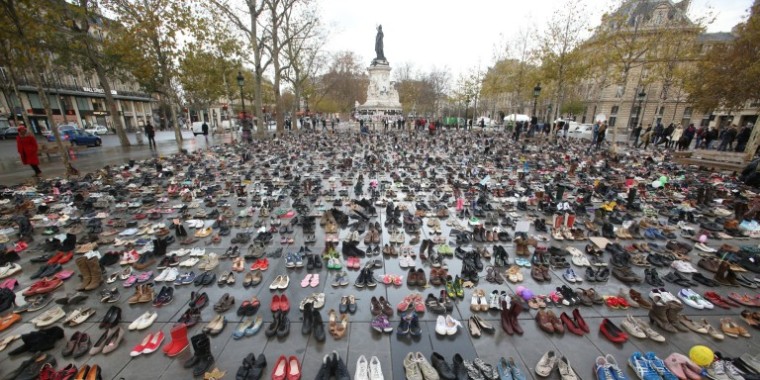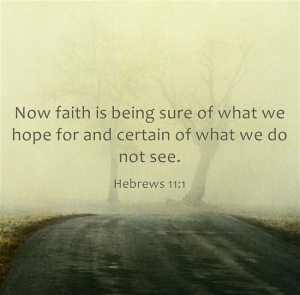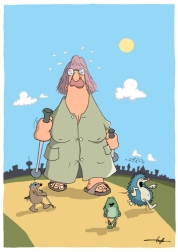Another ME awareness month arrives and I’m still blogging about life with ME! I’m now in my 4th year of recovering from my full ME relapse. 2017 also marks our silver wedding anniversary. When we made our wedding vows ‘in sickness and in health’ 25 years ago neither of us could have imagined how the years have fluctuated between the two. Therefore, this year, I decided to give my wonderful husband a chance to have his say on what it’s like being a husband / partner to someone with ME.
As a bit of background, ME is classified into Mild, Moderate and Severe. At my worst, I was top end of moderate and rarely got out of the house or could tolerate noise or social interaction. Progress has been fluctuating over the 4 years but I’m now in the ‘mild’ category and have managed to take on a 20hr/week work contract for 9 months. To maintain this I’ve had to cut out a lot of social interaction and things that most people would consider to be ‘fun’.
Even with mild ME my old life still seems a long way out of reach. There are good days; there are periods of good days, but the huge fluctuations between and within each day always frustrate attempts to get life back on track.
The NICE guideline for M.E. outlines three levels of severity – mild, moderate and severe – as follows:
- People with mild CFS/M.E. are mobile, can care for themselves and can do light domestic tasks with difficulty. Most are still working or in education, but to do this they have probably stopped all leisure and social pursuits. They often take days off, or use the weekend to cope with the rest of the week.
- People with moderate CFS/M.E. have reduced mobility and are restricted in all activities of daily living, although they may have peaks and troughs in their level of symptoms and ability to do activities. They have usually stopped work, school or college and need rest periods, often sleeping in the afternoon for one or two hours. Their sleep at night is generally poor quality and disturbed.
- People with severe CFS/M.E. are unable to do any activity for themselves, or can carry out minimal daily tasks only (such as face washing, cleaning teeth). They have severe cognitive difficulties and depend on a wheelchair for mobility. They are often unable to leave the house, or have a severe and prolonged after-effect if they do so. They may also spend most of their time in bed, and are often extremely sensitive to light and noise. (taken from Action for ME website)
It’s also important to distinguish between tiredness and (debilitating) fatigue which might not be obvious to the viewer. For me, fatigue is generally extreme tiredness (not refreshed by sleep) which exacerbates:
Heavy ‘lead-like’ limbs (sometimes twitch, shake & ‘pop’)
Weakness – especially in legs, arms and voice
Swollen/tender glands and lymph nodes
Noise sensitivity (causing pain and exhaustion)
Increase in orthostatic intollerance* (causing tachycardia, breathlessness and increased heart rate) *Associated with POTS
Brain fog and impaired memory and cognitive functioning
A full list of ME symptoms can be found here
So, now I’ll let Andy have his say…! (apologies for the wind noise at the beginning for anyone who is sound sensitive!)
For those that prefer a written format, Andy talks about his frustration on a personal level, and guilt and regret on a wider level, in particular about not giving more time to Prof Ian Gibson (former MP) in championing ME when Andy was in parliament. This is largely at my request as I felt a lot of shame in my diagnosis in the 1990’s due to the poor treatment I received by Doctors and general misconceptions by the public. Little did I know then, how many others were feeling the same!
“I share Sarah’s frustration of people not fully understanding the condition and it’s impact, and particularly the medical profession not really knowing what it is. I really wish more people did know”
Andy also asks if there is a forum for partners/wives/husbands of people with ME to share experiences and support one another?
It’s also an appropriate time to record my deep thanks and gratitude to Andy for always believing me and believing in me throughout the fluctuations and frustrations of this illness. I know that I’m hugely blessed that we continue to live, love and laugh together – in sickness and in health…
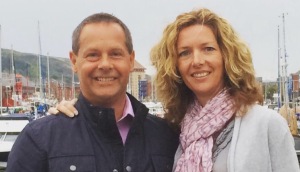
All of the below have excellent websites for further information on ME (in alphabetical order) I’ve pinpointed a few pages of general interest:
Action for ME symptoms
ME Action net What is ME?
ME Association controversy

NB: ME stands for Myalgic Encephalomyelitis. It is also referred to as Chronic Fatigue Syndrome (CFS)- much to the frustration of many sufferers!
Please do consider sharing something about ME this month. We still have a long way in getting this debilitating condition properly understood, funded and researched.
Follow and join the conversation at #MEawareness or #PwME (People with ME) #MillionsMissing #MissingmoreGET


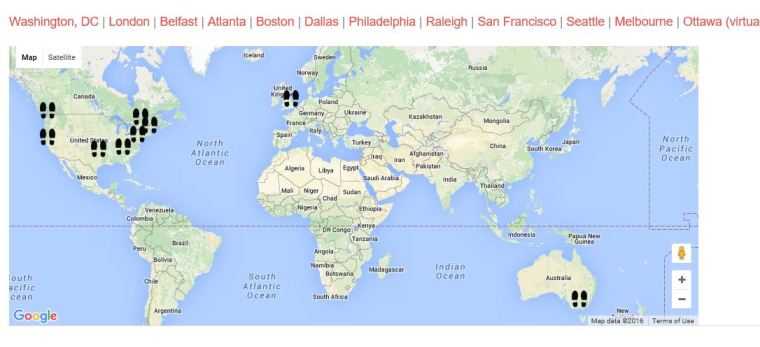 For many people with ME, this is far too big an ask. Many have been housebound for years, even decades, so there will also be a worldwide
For many people with ME, this is far too big an ask. Many have been housebound for years, even decades, so there will also be a worldwide 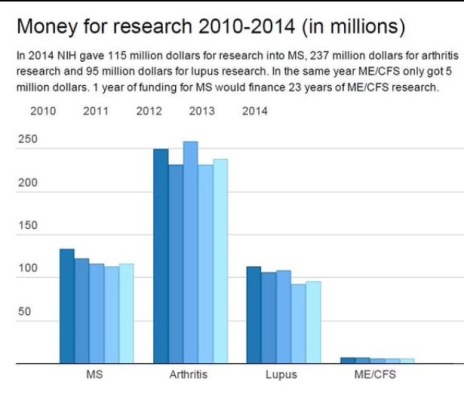
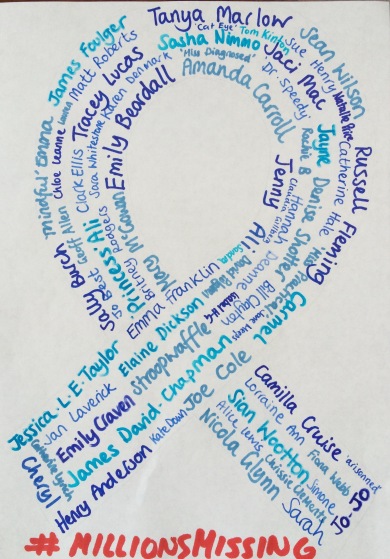

 The physical limitations on the body understandably bring isolation but the social consequences can be easily overlooked. I am a people person. I am sociable and happiest in the company of others. Unfortunately my body doesn’t always concur. Friends would offer to take me out for coffee, but trying to follow conversations against a background chatter and the blur of coffee machines was cognitively excruciating, ultimately exhausting and would always make me worse on the following days. Friends visiting me at home were instructed to keep visits to under an hour. Telephone conversations were particularly strenuous and exhausting and something I avoided as much as possible. Emails were a cognitive challenge and drain on energy and even the television was too much on some days. This wasn’t depression. I was totally frustrated with the situation and I can see how depression can become a secondary problem, especially when this continues for years or even decades without improvement. It takes good friends to stand by you when social interaction is so limited and unpredictable. Some can mistake it for lack of interest or commitment, especially when you can look so ‘well’.
The physical limitations on the body understandably bring isolation but the social consequences can be easily overlooked. I am a people person. I am sociable and happiest in the company of others. Unfortunately my body doesn’t always concur. Friends would offer to take me out for coffee, but trying to follow conversations against a background chatter and the blur of coffee machines was cognitively excruciating, ultimately exhausting and would always make me worse on the following days. Friends visiting me at home were instructed to keep visits to under an hour. Telephone conversations were particularly strenuous and exhausting and something I avoided as much as possible. Emails were a cognitive challenge and drain on energy and even the television was too much on some days. This wasn’t depression. I was totally frustrated with the situation and I can see how depression can become a secondary problem, especially when this continues for years or even decades without improvement. It takes good friends to stand by you when social interaction is so limited and unpredictable. Some can mistake it for lack of interest or commitment, especially when you can look so ‘well’.